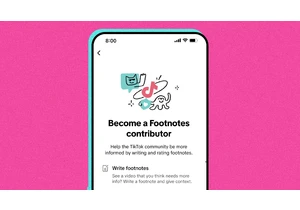Want to know the Bible’s stance on technology? There’s an AI chatbot for that.
Just a few years ago, experts were predicting a mass decline of Christianity. The percentage of Americans identifying as Christian has fallen almost 20 points since 2000, while the population of non-affiliates was rising. But that decline has stalled out around 70%, staying stable since the late 2010s. Meanwhile, Bible sales are up 22% year-over-year through the end of October, thanks in part to first-time buyers. And Christian apps are riding that surge of popularity.
Tech mavens have officially intermixed software and faith. Hallow, a Catholic prayer guidance app, topped the App Store this Lent. Below it, dozens of apps give users access to Bible verses and study techniques, religious chatbots, and Church services. These apps pull in millions on in-app purchases alone. Believers can officially find God in the Church, in the liturgy, and now in their phone.
Christian tech’s growth spurt
Hallow leads the pack among these new-age Christian tech companies, racking up over 22 million downloads. (You’ve likely stumbled upon one of their ad campaigns, many of which feature actor Mark Wahlberg, who has an ownership stake in the company.) Recently, the company’s Advent prayer challenge went viral thanks in large part to Gwen Stefani’s promotion of the app.
Hallow has to date received over $100 million in funding, with right-wing billionaire Peter Thiel and incoming Vice President J.D. Vance among its benefactors. While users may partake in the free version, expanded access requires users to cough up $69.99/year. According to Appfigures, Hallow made $2.5 million in November on in-app purchases alone.
Other Christian apps are finding success, too. Bible Chat, an AI chatbot trained exclusively on the Bible, currently leads among religious apps in the App Store. They’re second on the Reference chart, only behind Google Translate, and have been downloaded seven million times since their 2023 launch. That’s not to be confused with Bible Chat AI, a budding chatbot that’s answered 5.5 million questions from over 100,000 users. (In an email, a representative from Bible Chat warns that there are “vastly inferior copycats plaguing the Christian faith sector.”)
Of course, tech isn’t just being used to replace traditional practice; it can also aid church operations. Tithe.ly offers Churches a way to receive tithes and donations online. Used by over 39,000, Tithe.ly skims just under 3% off all charitable contributions. The company has pulled together some major funding rounds, with a 2019 Series F round that scored $15 million.
The old guard of religious apps
While these new-age apps grow, the old guard is holding strong. Many users still have use for a standard Bible app; they don’t need the bells and whistles of a chatbot. The kingpin of these companies is YouVersion, which offers the Bible App, Bible App Lite, and Bible App for Kids.
In 2024, 71 million users installed YouVersion’s Bible app, of its cumulative 681 million downloads. The app records impressive engagement, with 3.4 billion highlights, bookmarks, and notes created in 2024.
Are we experiencing a Christian revival? It’s hard to tell. What we do know is that these apps are growing rapidly, picking up God-fearing users along the way.
Login to add comment
Other posts in this group

Tesla‘s electric-vehicle registrations in California dropped 15.1% during the first quarter, industry data showed, signaling an

TikTok is launching its own version of community notes on the platform, called “Footnotes.”
The crowd-sourced approach to moderation, where users add additional context to p
MrBeast has again defended his philanthropy‑as‑content, clapping back at critics who say he is “only in it for the views.”
On April 13, in a post on X, Jimmy Donaldson—better k

Meta CEO Mark Zuckerberg once considered separating Instagram from its parent company due to worries about antitrust litigation, a


If you’re planning to see the new Minecraft movie and haven’t heard of the viral “chicken jockey” trend w

For about 20 years, Docusign has been known as a tool for collecting digital signatures—helping businesses replace paper forms with electronic versions that are just as secure and legally binding.
